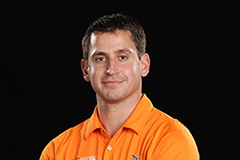
The US Open is one of the biggest tests of mental toughness in golf every year.
The USGA consistently strives to have the winning score around even par. At the beginning of last week, critics thought that the 2013 US Open at Merion Golf Club, host of the 113th U.S. Open, may have been outdated, but nothing was further from the truth.
Going into the final round Sunday, it was anyone’s guess who would win. The piece of information that most people weren’t privy to was Justin Rose’s thought process and outlook coming into the final round.
Anyone who watched the final round this Father’s Day weekend will attest that it may have been the toughest final round of any major in recent history. The final hole did not give up a birdie all weekend. It was a weekend of survival, patience, and persistence.
The leader board on Sunday was stacked with major winners and former world No. 1s – with the exception of Rory McIlroy and Tiger Woods, many of the top names in golf were there: Phil Mickelson, Charl Schwartzel, Hunter Mahan, Steve Stricker, Jason Day, Luke Donald and Rose.
But for Rose, his one objective was to be the man his father taught him to be and be the man his kids look up to. Rose admits that this was the difference maker in his golf game on Sunday and was what led to a trophy at the 2013 US Open.
Learning from role models and capturing their traits is nothing new in mental training and sport psychology. It is, however, a huge key to reaching your full potential inside and outside of golf. There is no reason to reinvent the wheel when it comes to developing a champion mindset. The keys to success are in every history book.
Traits like sportsmanship, determination, perseverance, and confidence can be found in every winner. Rose chose to emulate a great winner off the course this week: his father.
We can all learn from this and use it to help with our golf game and daily actions off the course. It starts with deciding how you want to be and choosing a person you know or look up to who has these traits. In mental training and golf psychology, we call this process modeling.
We use modeling with our juniors in the Full-Time Junior Program here at the Gary Gilchrist Golf Academy. Modeling in relation to golf is identifying the traits of champion golfers and learning how these golfers think and act to create those traits. Our students then mirror these thoughts and actions to learn and develop these positive traits.
So next time you have a big round of golf, a big shot you have to hit, or even something big outside of golf – two good questions you can ask yourself to help guide your thoughts and actions are:
· Who is someone I look up to who would know how to think and act in this situation?
· How would that person I look up to think and act in this situation?
Rose didn’t ask these exact questions, but went through a similar process, and it worked out well for him in becoming the 2013 US Open champion. Congratulations Justin Rose.
Want to work with or ask Dr. Dan a question? Shoot him an email at
[email protected].

